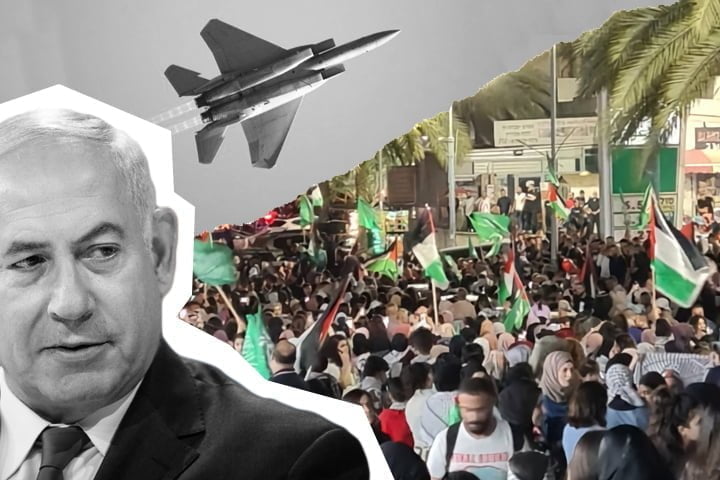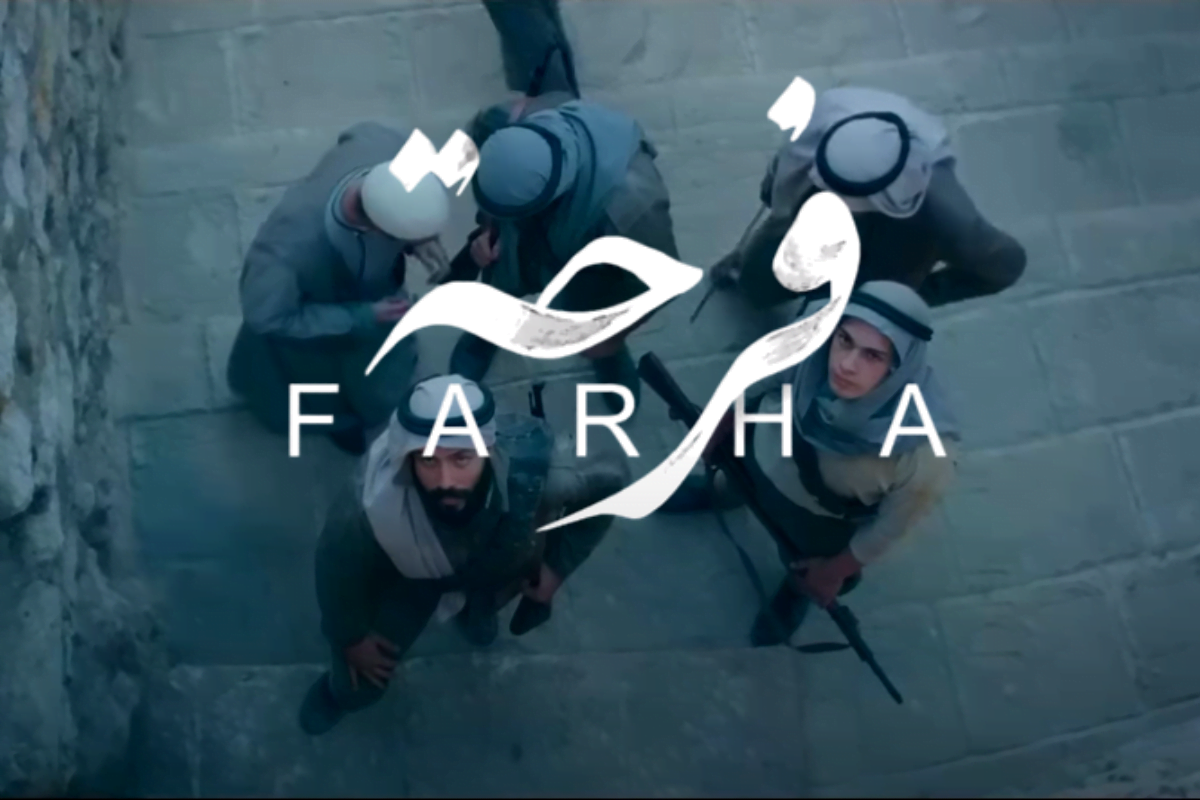A new harrowing Netflix film explores the devastation inflicted upon the people of Palestine through the Zionist creation of the state of Israel – a story that strikes a chord today, as the struggle for Palestinian freedom continues.
Farha, a new film now airing on Netflix, has put an oft-forsaken episode of history back into the spotlight: the Nakba.
Literally meaning ‘catastrophe’ in Arabic, the 1948 Nakba saw an estimated 700,000 Palestinians expelled from their homeland by the Zionist Haganah and paramilitary forces in the run-up to the proclamation of the state of Israel, leaving a bloody stain on the whole region.
It is one thing to read about these events and understand the violence it has engendered. With an ever-rising death toll, and frequent ‘flare ups’ in the ‘conflict’, one can easily become desensitised to the devastation laying waste to historic Palestine.
It is another thing entirely, however, to feel what is often unfelt: to see vividly the personal devastation caused by the ethnic cleansing that characterised the establishment of the state of Israel. And this is exactly what Jordanian director Darin J. Sallam has masterfully done.
WARNING! This review contains spoilers.
Zionist project

Inspired by the true story of a 14-year-old Palestinian girl who bore witness to the cleansing of her native village, we are trapped inside a pantry with the protagonist as her childhood is left in tatters.
Sallam sets the scene with teenager Farha wanting to move from the quiet conforms of the countryside to be educated in a city. She has no interest in being married off, and strikes a defiant tone with her father to be granted her wish. Once he begrudgingly signs the papers to send her to school, Farha’s joie de vivre is palpable.
But within a matter of minutes, Farha’s hopes and dreams go up in smoke. Sirens echo; rounds of ammunition sound, as panic pervades. The Zionist paramilitary has arrived. Refusing to leave her father behind, she finds herself locked in a small storeroom, told to stay put – quelled only by the promise of her father’s return; a promise, as we come to find, made in vain.
These harrowing scenes demolish the lie that there was simply ‘no one there before’. The village is desolate as the film draws to a close, made that way by design.
This tragic tale brings into sharp relief that the very beginnings of Israel was based on the brutal dispossession of Palestinian people. The Zionist project was always destined to such tragedies.
Window onto suffering
It is locked inside the pantry with Farha where most of the film is suspensefully shot. Peeping out from the cracks and crevices in the door, as well as a hole in the wall, we look on as helplessly as Farha at the cold-blooded murder of a Palestinian family.
After being cornered by Zionist soldiers, we see a father beg for his family to be saved. But to no relent, his humiliated cries are ignored. The family is rounded up and shot. The newly born son is spared, only to suffocate in the dusty recesses of the garden.
This scene, in particular, is one that lingers with viewers long after the camera stops rolling. And unsurprisingly, it has been the one that has raised the biggest hue and cry from Israeli officials.
And yet, what we see, history ratifies. Whether we look at historical examples – the massacres at Tantura or Deir Yassin in 1948 – or to Dahmash to this very day, we find a river of blood separating the desires of ordinary Palestinians to live undisturbed from the settler colonial Zionist project.
What is outrageous is the way in which Israel’s creation, and the Zionist project more broadly, is discussed in the mainstream media and taught in the textbooks. It is one that shamelessly attempts to erase the history of the Palestinians, and whitewash the terror inflicted by what would soon become the Israeli Defence Force.
Nakba continues

Despite being a rather simple story, the punch and poignancy of Farha’s message goes far beyond the film’s limited scope. It should be commended as a rarity for finding its way to the silver screen and international acclaim, as well as skillfully depicting one of the forlorn stories of the dispossessed.
In fact, it would be impossible to be impervious to the way the film ends. Farha never sees her father again, joining countless other refugees with only their story to tell.
It has struck a chord precisely because it speaks to more than just Farha’s strife, however. This catastrophe remains the reality today for the Palestinian diaspora – in Jordan, Lebanon, Syria, and elsewhere – either barred or born a long way from ‘home’.
And whether it is the struggle today against the forced evictions in Sheikh Jarrah, the squalid conditions in the Gaza strip, the discrimination within the Green Line, or the de facto annexation of the West Bank – the struggle for Palestinian liberation continues.
‘Farha’ translates in Arabic to joy, or celebration. But such sentiments cannot be achieved in any long-lasting way for any peoples under the iron heel of imperialism and Zionism.
Only through revolutionary struggle – transforming the entire blood-soaked region along socialist lines – will animosity between peoples be undermined, and joy and celebration between class brothers and sisters flourish.






